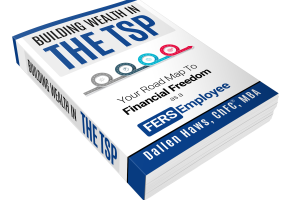Is investing all your retirement money in the G fund a good idea?
When and how much can I withdraw from the TSP and not run out of money in retirement?
Should I put all my TSP money in a TSP annuity?
In this article, we will be discussing each of these questions and seeing what the smartest feds do with their TSP at retirement.
100% Conservative?
Is having all your retirement money invested in conservative funds like the G and F funds a good idea? Afterall, you don’t want all your money to fluctuate with the stock market if you’re withdrawing from the TSP consistently.
The answer to this question is rarely “yes”. Unless you plan on using all your TSP money very soon, you should have some of your TSP that grows over time in funds like the C, S, and I funds. You can’t depend on low-return funds throughout your retirement. The average retirement lasts around 20 years. What if your retirement lasts longer. Can your TSP maintain its value?
Predicting when your retirement will end is not a smart game. It would be virtually impossible to time your last available TSP withdrawal with your death. Most people have no clue when they are going to die. Making a plan that can last forever is the best idea. Having a portion of your TSP money in conservative funds for spending purposes and the other portion of your TSP money in aggressive funds for growth purposes is probably the best strategy for the average person.
So, how much should I put into conservative vs aggressive funds? If you want your TSP to last forever, it’s probably good to have at least 60% of your money invested in aggressive funds. The other 40% can be invested in conservative funds that you can withdraw from consistently. But, this example WILL NOT work for everyone.
It is good to have around 7 years worth of living expenses in conservative funds to withdraw from. The market goes up and down and having 7 years of living expenses in funds that don’t fluctuate as much with the stock market helps to battle against stock market crashes. During your retirement, you can use the money from your aggressive funds to replace your conservative funds when the stock market is high.
Withdrawal Options
The TSP is meant for retirement. Therefore, if you decide to withdraw from the TSP before retirement and before the age of 59.5, there will be a 10% reduction (unless you qualify for an exception like the rule of 55). Withdrawing money from the TSP early is not a great option. Try to avoid this as much as possible.
In retirement, it’s important not to withdraw too much. The worst thing that can happen is not having retirement money in retirement. To prevent this, a good rule to follow is the 4% rule. This rule states that if you take 4% out of your TSP annually, the odds of you running out of money is almost 0. To give an example: 4% of $500,000 is $20,000. $20,000 per year means you will get $1,666 per month (minus taxes). This rule is intended to combat inflation. Meaning, your TSP is supposed to grow over time as well.
TSP Annuity?
A common decision federal employees make at retirement is turning their TSP into an annuity. Basically, they give their TSP money to an insurance company. The insurance company in turn promises to pay you a certain amount consistently for the rest of your life.
Is this a bad decision? As a federal employee you have two other main sources of consistent income in retirement including your FERS pension, and social security. You could also have others like the FERS supplement, rental income, small business, etc. A great question you could ask yourself is, “Do I need another consistent income source?” Most federal employees don’t need another annuity, they need more flexibility.
Example: Let’s say you have social security, your FERS pension, and you opted to get a TSP annuity in retirement. With these three income sources you get about $6,000 a month. But, what happens if there’s an emergency that you need a little extra money for? What happens if you want to buy another rental house, or a boat, or go on an expensive vacation. Having complete control over your TSP is useful for unique situations (which will likely come up over the course of your retirement).
Conclusion
Retirement should be a time you are not stressed about finances. Hopefully you find what works best for you and make a financial plan that can last forever. The examples in this article may not work for you. Everyone’s finances and goals are different. If you would like more information, feel free to visit our website here or schedule an appointment with us here.


